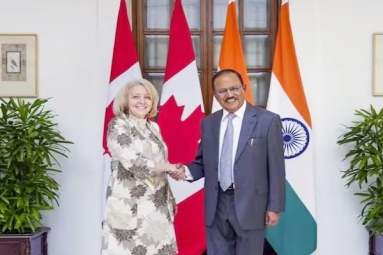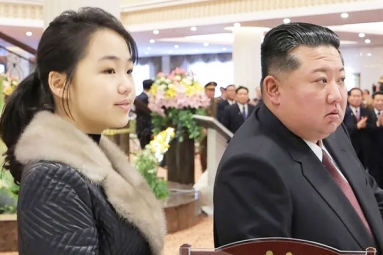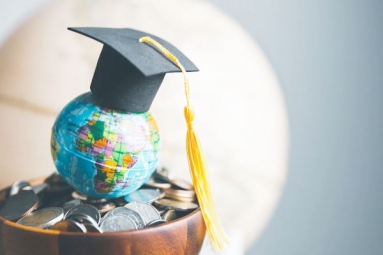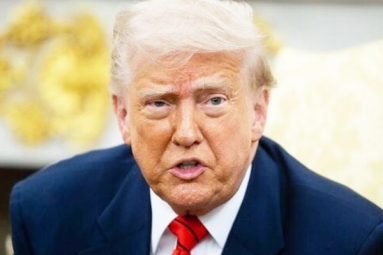
(Image source from: x.com/narendramodi)
In a major diplomatic advancement, India and Canada have decided to start discussions on a high-level Comprehensive Economic Partnership Agreement (CEPA), indicating a significant improvement in relations after a period of difficulties. This update was shared after a meeting between Prime Minister Narendra Modi and Canadian Prime Minister Mark Carney during the G20 Leaders' Summit in Johannesburg today. The discussions for the Canada-India CEPA began in 2010 and picked up speed in 2022 with increased collaboration in areas like pharmaceuticals and rare and critical earth minerals, as well as in fields such as tourism, urban development, renewable energy, and mining. However, Canada halted the talks in 2023.
As per a statement from India's Ministry of External Affairs (MEA) released late Sunday, both countries agreed to work towards an ambitious trade agreement aimed at increasing their bilateral trade to $50 billion by 2030. The renewed discussions will also focus on strengthening long-standing cooperation in civil nuclear matters and moving forward on long-term uranium supply agreements, which are of mutual strategic interest. This thaw in relations comes after a long period of tension between New Delhi and Ottawa. In recent years, India has consistently expressed worries about the Khalistani extremist groups operating in Canada, which it claims are a direct threat to its national security. Relations soured significantly in 2023 when former Canadian Prime Minister Justin Trudeau made unverified accusations against India concerning the death of a Canadian citizen related to Khalistani separatism. India rejected these allegations as politically driven and without proof, resulting in reciprocal reductions in diplomatic levels and a halt in trade talks.
Had a very productive meeting with Prime Minister Mark Carney of Canada. We appreciated the significant momentum in our bilateral ties since our earlier meeting held during the G7 Summit hosted by Canada. We agreed to further advance our relations in the coming months,… pic.twitter.com/lnuj2SGoWu
— Narendra Modi (@narendramodi) November 23, 2025
The change in attitude started earlier this year, influenced by ongoing conversations between External Affairs Minister S Jaishankar and Canadian Minister Anita Anand. The two officials met several times, helping to create trust-building actions and slowly restore standard diplomatic communications. In October 2025, both nations officially declared the normalization of their diplomatic relationships, which included bringing back High Commissioners in New Delhi and Ottawa. Canadian Prime Minister Mark Carney, in a press conference earlier on Sunday, stated, "Canada is pragmatically reconnecting with major countries like India and China. Just yesterday, Canada, India, and Australia established a new trilateral alliance focused on technology and innovation, which will enhance our collaboration in important and emerging technologies. This partnership will utilize our strengths and will target clean energy, essential minerals, and artificial intelligence to create more opportunities for Canadian workers and companies."
The expected trade agreement will probably cover a variety of topics such as goods, services, investments, agriculture, digital trade, labor movement, and sustainable development, including a shared goal of promoting the use of AI and digital technology. The meeting in Johannesburg seems to have strengthened that progress. In addition to CEPA, PM Modi and Carney supported the Australia-Canada-India Technology and Innovation (ACTI) Partnership aimed at enhancing cooperation in critical technologies, AI, nuclear power, and diversifying supply chains. With discussions on CEPA about to start and high-level discussions back on schedule, India and Canada appear ready to rebuild a partnership that was once thought to be in danger. The months ahead will reveal if this political shift can lead to lasting economic and strategic benefits for both countries.










